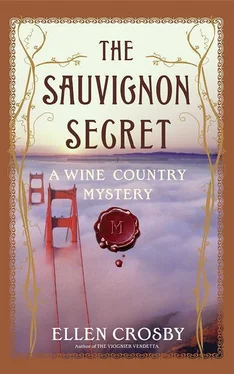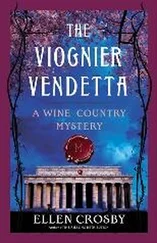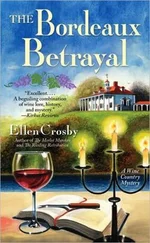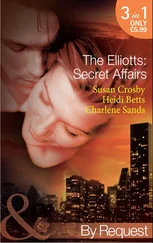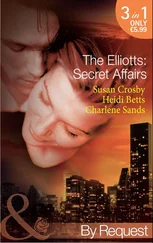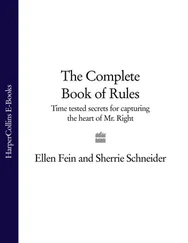“Listening to what?”
She grinned. “I always wanted to be an opera singer, did you know that? Too bad I can’t carry a tune in a paper bag. There’s coffee in the kitchen.”
“Singing has to be the only gift you don’t have,” I said, “and I thought you sounded pretty good.”
“Just for that I’ll fix your coffee. Paper’s on the bar. I hate to be the one to tell you, but Paul Noble committed suicide. Can you believe it?”
“Yeah, what a surprise.”
Frankie took one look at my face and said, “What?”
“You know the local woman who found him?”
“Oh, God. Please don’t say it was you.”
My phone rang in the pocket of my jeans and I pulled it out. The display read “private number” but I knew the caller.
“It’s a long story,” I said and answered the phone.
“Lucie, love, glad I caught you.”
“Mick Dunne.” I sat down on a bar stool. “It’s been awhile.”
Frankie picked up the newspaper next to me and began reading, throwing me looks like daggers. I mimed “coffee?” and she rolled her eyes indicating I was hopeless and left for the kitchen.
In a perfect world, Michael Dunne is the archetype “great catch” every mother wants her daughter to marry. Tall, dark, handsome, well educated, youngest son of a prominent British political family, and, oh, yes, a self-made businessman worth millions. He went foxhunting with the old-money crowd, played polo with the lads, and bred some of the finest Thoroughbreds in the region, including a stallion who’d raced in the Derby and two jumpers whose riders earned ribbons in the last summer Olympics.
I’d fallen hard for Mick. But it wasn’t long before I discovered the other women who also had him in their sights and Mick’s problem with fidelity and commitment. We tried for a while, but I never stopped wondering if anything, or anyone, would be able to satisfy his restlessness. So I left before he did, before he told me that I wasn’t the one, and now our relationship had evolved into that edgy ex-lovers’ place where temptation, lust, and I-can’t-do-this-again intersected. I coped by staying away from him as much as possible.
What complicated matters, or made them more complicated, was that Mick had moved here a few years ago after growing bored with the successful pharmaceutical business he owned in Florida and selling it, with the surprisingly romantic idea of living the indolent life of a Virginia gentleman-farmer who raised horses and owned a vineyard. The horses were his passion, but he had long since tired of the tedium involved in growing grapes and impatient with the three-year wait before he could bring in his first harvest. He’d leaned on me for advice, and I helped him as much as I could—before, during, and even after our affair. Call me noble.
Earlier this spring he tried to strike a deal with me after he lost nearly everything in a massive financial scam: I would buy his grapes outright, and Quinn Santori, my winemaker, and I would make his wine, bottled under a new label that included both vineyards. Then, two weeks ago, I found out he had earned back most of the money, as suddenly and spectacularly as he lost it, on a wildly successful IPO investment and a moribund real estate deal that finally paid off big. Now he was back in the game again: horses and wine. He was on the verge of hiring a smart young South African winemaker, but at least through this harvest he wanted to retain Quinn and me as advisers.
Mick always phoned in the morning, usually after he got back from his daily hack, so the timing of his call wasn’t a surprise. But I knew, the way any woman knows after she’s slept with a man, that the undercurrent in his voice meant he wanted something from me, and whatever it was, I probably wouldn’t like it.
“You’re right. It’s been entirely too long,” he said to me now. “I miss you, darling.”
I’d guessed correctly. How big was this favor?
I took a deep breath. “Like a toothache when it’s gone, sweetheart. What is it, Mick?”
His laugh was too hearty. “You’re a cruel woman, Lucie Montgomery, stabbing a poor bloke through the heart.”
“First I’d have to find it and don’t try to butter me up.”
He laughed again. “God, I really do miss you. And you know what I mean. We were good together.”
I shivered, grateful for the distraction of Frankie setting down a coffee mug in front of me.
“Mick, I’ve got a million things on my plate—”
“All right,” he said, “I’ll get to it. I’d like to bottle some wine right now.”
I almost sloshed my coffee on the bar. “You mean buy someone else’s grapes? What brought that up?”
I could hear his shrug through the phone. “Everyone does it.”
It was true. Vineyards often bought grapes grown elsewhere and made wine they could then sell in their tasting rooms before they were able to harvest their own crop. It was a way of building a brand, and it helped financially during the lean years with no income to offset the massive start-up costs of salaries, equipment, and root-stock.
But his timing was odd.
“Why now?” I asked. “We should have talked about this months ago. Harvest is only six, maybe eight weeks away.”
“I can get a good deal on a couple thousand gallons from a terrific vineyard that’s cash-strapped,” he said. “A friend told me about it.”
A fire sale. A lot of that going around lately. Maybe one of Paul’s other clients.
“Who’s selling it?” I asked.
“Rose Hill Vineyard.”
“Are they new? What part of Virginia are they from?”
“It’s not a Virginia vineyard,” he said. “They’re out in California, in Napa. Calistoga, to be precise.”
“ California? You want to buy California wine and bottle it to sell in Virginia? Why?”
“Because it happens to be top-drawer stuff and she’s selling it for a song, that’s why.”
“Mick,” I said, “you won’t even be able to call it Virginia wine. You’ll have to label it ‘American wine.’ ”
I could hear his exasperated sigh on the other end of the line. “So? And don’t give me all that terroir stuff. Who cares where it comes from as long as it’s good?”
That terroir stuff. Terroir was the indefinable “something” that made wine taste of the place, the soil, the land where it had come from. It made each wine unique—why the great Bordeaux wines came only from that region in France, just as the most famous Rieslings were from Alsace, and why a wine from Virginia, with its hot, humid summers and freezing cold winters, would never be mistaken for anything produced in the temperate climate and endless sunshine of California.
“I care,” I said. “I’m a Virginia winemaker. What you’re talking about is Mondovino , that documentary on the globalization of wine-making. You’re saying terroir counts less and less so soon we’ll all be making the same generic wine, regardless of where we live. Chardonnay will be Chardonnay will be Chardonnay whether it’s from France, Virginia, Australia, or California.”
“Lucie.” He was blunt. “I know what a purist you are, but I’m a businessman. I can buy this wine for a steal. And I’d like some help from you.”
I could be just as curt. “Hire the bottling guys and you’re all set.”
“Not if I need to blend it.”
“You want me to make your blend?”
“Yes, I do. I’ll make it worth your while, I promise.”
Money. He hit me right in my Achilles’ heel. I knew he’d pay a bundle, but I didn’t understand why he had to go to California for his grapes.
“How do you know it’s not plonk and that’s why you’re getting it so cheap? There’s plenty of wine you could buy right here in Virginia.”
Читать дальше
